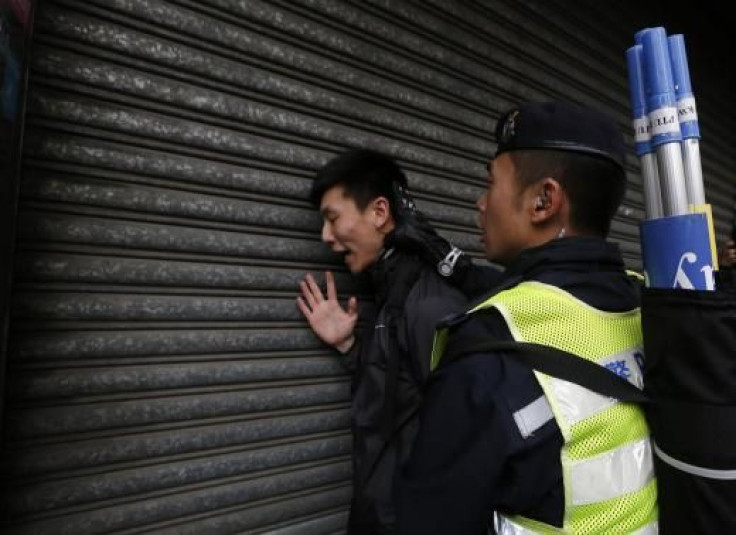Hong Kong Police Use Pepper Spray As Protests Against Chinese Shoppers Turns Ugly

Police in Hong Kong broke out pepper spray and detained at least 33 people Sunday as about 400 demonstrators in the district of Yuen Long clashed with other residents over growing mainland Chinese influence in the region, the Associated Press reported. Protesters living in the district, about seven miles from the Chinese city of Shenzhen, were upset by so-called parallel shoppers who come across the Chinese-Hong Kong border to buy goods before returning home to sell them at a profit.
Demonstrators blockaded the district’s main street with garbage bins, as they called for authorities to “cancel the multiple-entry permit” so shoppers would be unable to travel across at will.
“We should not endure this silently,” resident King Lee told Reuters while protesting the parallel shoppers. “We can’t walk, because all their goods pile up like mountains on the streets.”
This and similar clashes are framed by the pro-democracy Occupy Central demonstrations in Hong Kong, where more than 100,000 people took to the streets between September and December last year to protest Beijing’s proposed reforms of the region’s electoral system.
Months later, the anti-Beijing sentiment was still apparent. Demonstrators marching through the suburban Yuen Long chanted, “Topple the Chinese Communist Party.” Scuffles broke between them and crowds of local villagers, who sell medicines and baby formula to mainland Chinese guests and are not opposed to the parallel shoppers.
“Why are there so many mainlanders shopping in Hong Kong? It’s because our products are good,” Tom Lau, a 50-year-old resident, told Reuters. “Why oppose them [the shoppers]? They are just protesting for the sake of protesting. They are just stirring up trouble. They march with the colonial flag, but we are Chinese people.”
Mainland Chinese shoppers are attracted by the lack of sales tax in Hong Kong. Luxury goods, such as Apple iPhones and television sets, along with medicines and cosmetics, are popular among the visitors who believe them to be more authentic than what’s available in China.
© Copyright IBTimes 2024. All rights reserved.












